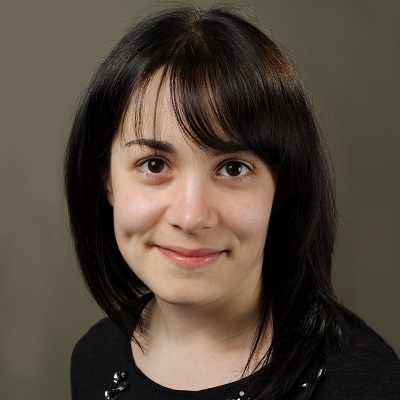Narrative CV
(My complete CV is available at the bottom of the page)
Scientific background
I have always been fascinated by how our brain merges information from our complex multisensory world, and how (a)typical development shapes this crucial ability. During my Master’s thesis at CIMeC, University of Trento (IT), I worked with Prof. Olivier Collignon on cross-modal plasticity in deafness using MRI. My work contributed to showing intact functional specialization for spatial and motion processing in the deaf auditory cortex, despite input from a different sensory modality (i.e. vision). This research experience consolidated my desire to understand how the brain implements cognition across the senses.
In 2020 I completed a PhD in computational cognitive neuroscience with Prof. Uta Noppeney at the University of Birmingham (UK). There, I studied multimodal integration through the framework of Bayesian Causal Inference, which represents the state-of-the-art principled computational account of how the brain binds information across the senses. Of note, my work (combining psychophysics, computational modelling and MRI) also investigated the multisensory processing of naturalistic stimuli (i.e. music), offering original insights into how the brain automatically tracks naturalistic multisensory information.
Having approached perception from a Bayesian perspective, I started wondering about how prior expectations are established and how they evolve as a function of learning. Following this interest, I worked as a postdoc in the Predictive Bain lab of Prof. Floris de Lange at the Donders Institute (NL), where I combined behavioural analyses and fMRI to examine how expectations are implemented in the brain. During a national symposium I co-organised, my work bridging the gap between statistical learning and predictive processing encountered significant interest in the scientific community.
I then realised that my expertise in multimodal integration and prediction would be highly relevant to the study of face-to-face communication. Driven by this motivation, I worked as a postdoc in the Neurobiology of Language Department of Prof. Peter Hagoort at the Max Plank Institute for Psycholinguistics (NL). Using advanced Bayesian modelling, I resolved the outstanding debate on how language comprehension is influenced by beat gestures, i.e. rhythmic up-and-down hand movements that typically accompany prosodic stress in natural, face-to-face conversation. In parallel, I started formalizing my ideas about how multimodal face-to-face communication is implemented in the brain, which received positive feedback during an international symposium that I co-organized.
Recently, I decided to venture into developmental neuroscience to directly tackle the question of how we learn to use verbal and non-verbal communication to exchange meanings with other individuals. Specifically, I got interested in examining whether and how preverbal infants use manual gestures to communicate with their caregivers. I developed this into a research idea that was awarded the Marie Skłodowska-Curie (MSCA) postdoctoral fellowship.
In 2024 I have also received the Training and Professional Development Award from the Society for Neuroscience in recognition of my outstanding early-career trajectory.
Network and academic citizenship
Throughout my career thus far, I have built a broad international and interdisciplinary network of highly renowned scientific collaborators (Uta Noppeney, Floris de Lange and Judith Holler, Donders Institute; Peter Hagoort and Fenna Poletiek, Max Plank Institute for Psycholinguistics; Athena Akrami, UCL). I have presented my work at large international conferences (SfN, OHBM, SNL, IMRF, ECVP), I have been invited to give lectures (inter)nationally (UCL; CIMeC; SISSA; University of Padova), and I have thereby established several ongoing collaborations.
I am strongly committed to open science, as evidenced by my ongoing contribution to an open MATLAB-based toolbox for EEG time-frequency analysis, my sharing of research data and code in open-access repositories (Radboud Data Repository; OSF) and my regular use of preprint servers (bioRxiv; PsyArXiv).
I deeply care about building community in the workplace. I have served as a postdoctoral representative at the Donders Institute, organizing scientific and social events tailored to postdocs and pushing the institute agenda towards formalizing a career training centre for postdocs. I am actively using the same mindset in my current host institution (CIMeC, University of Trento) to support the visibility and representation of my colleagues.
I believe in the importance of embedding science in society to help shape both for the better. I have always been actively involved in scientific outreach (public engagement via interviews on YouTube and at an Italian top-chart science podcast; organization of scientific festivals).
